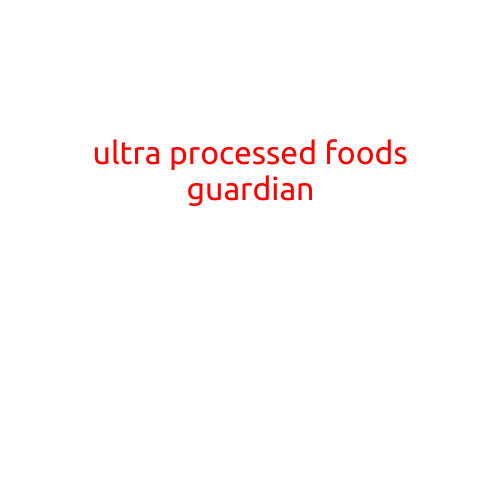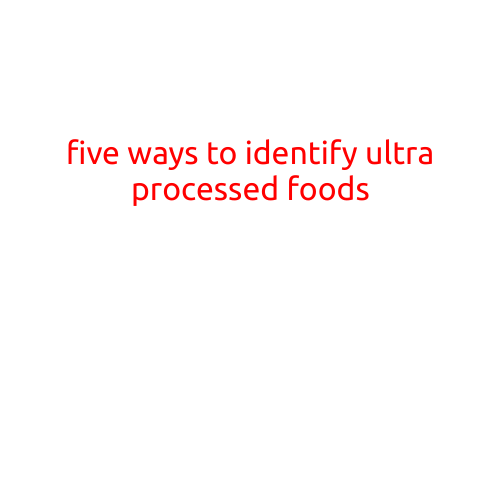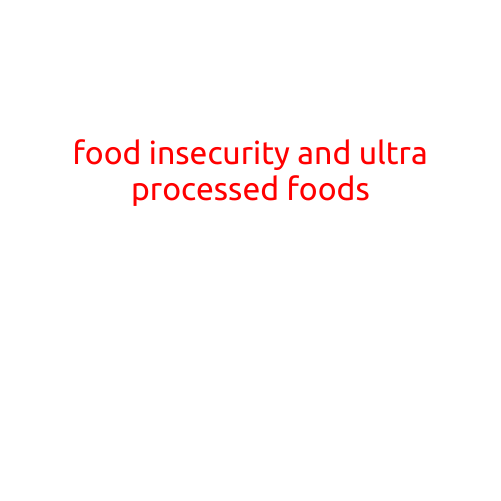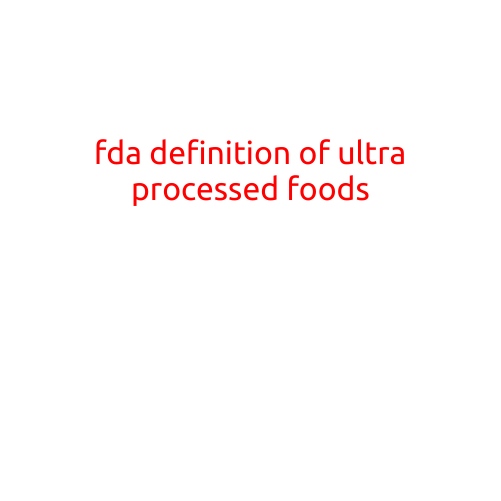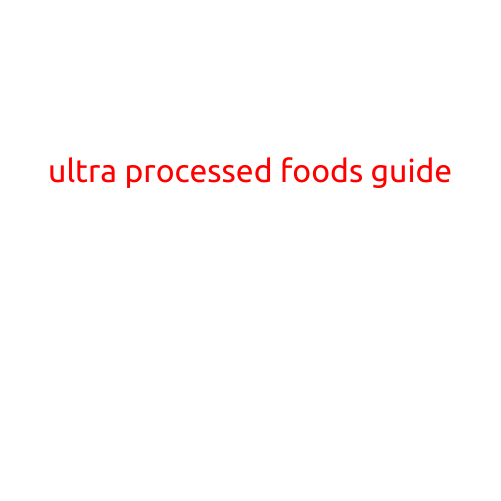
The Ultra-Processed Foods Guide: What You Need to Know
As the way we live and eat continues to evolve, the food industry has responded by introducing a vast array of new products that are convenient, affordable, and appealing to many consumers. However, amidst the abundance of choices, a growing body of research has raised concerns about the impact of certain foods on our health and well-being.
At the center of this debate are ultra-processed foods, a category of products that has grown exponentially in recent decades. If you’re wondering what these foods are, how they’re made, and why they’re a topic of concern, this guide is here to provide you with the essential information you need to make informed choices about the foods you eat.
What are Ultra-Processed Foods?
Ultra-processed foods are a category of highly processed products that have been engineered to be more appealing, convenient, and shelf-stable. They typically contain a combination of five or more ingredients, including additives, preservatives, and coloring agents, in addition to other substances derived from animals or plants.
Some common characteristics of ultra-processed foods include:
- High levels of added sugars, refined carbohydrates, and unhealthy fats
- Presence of additives, preservatives, and artificial flavorings
- Limited or no whole food components (e.g., fruits, vegetables, whole grains)
- Often produced in large, industrial quantities using high-tech equipment and manufacturing processes
Examples of ultra-processed foods include:
- Ready-to-eat meals (e.g., frozen pizzas, microwaveable meals)
- Processed meats (e.g., sausages, hot dogs, bacon)
- Packaged snacks (e.g., chips, crackers, cookies)
- Sugary drinks (e.g., soda, sports drinks)
- Refined grain products (e.g., white bread, sugary cereals)
Why are Ultra-Processed Foods a Concern?
Research has shown that frequent consumption of ultra-processed foods is linked to an increased risk of chronic diseases, including:
- Obesity
- Type 2 diabetes
- Cardiovascular disease
- Certain types of cancer
- Cognitive decline and dementia
Several mechanisms have been proposed to explain the negative health effects of ultra-processed foods, including:
- High levels of added sugars, which can lead to insulin resistance and metabolic disorders
- Presence of advanced glycation end-products (AGEs), which can promote inflammation and vascular dysfunction
- Low levels of essential nutrients, such as fiber, vitamins, and minerals
- Changes to the gut microbiome, which can disrupt metabolic function and immune responses
Tips for Reducing Your Consumption of Ultra-Processed Foods
While it’s not always possible to eliminate ultra-processed foods from your diet completely, there are steps you can take to reduce your consumption and promote a healthier relationship with food:
- Read labels carefully: Check ingredient lists and nutritional labels to identify foods that are high in added sugars, unhealthy fats, and sodium.
- Cook from scratch: Prepare meals using whole foods, such as fruits, vegetables, whole grains, lean proteins, and healthy fats.
- Shop the perimeter of the grocery store: Focus on the fresh produce, meats, and dairy sections, which tend to offer more whole, unprocessed foods.
- Avoid emotional eating: Be mindful of your motivations for eating and try to eat more intentionally, rather than out of boredom or stress.
- Plan ahead: Prep meals and snacks in advance to avoid relying on convenience and ultra-processed foods.
- Get support: Share your goals with friends and family, and consider seeking guidance from a registered dietitian or nutritionist.
Conclusion
Ultra-processed foods are a concerning trend in the modern food landscape, with links to chronic diseases and negative health effects. By understanding what these foods are, how they’re made, and the potential risks they pose, you can make informed choices about the foods you eat and take steps to promote a healthier, more balanced diet. Remember, a diet rich in whole, unprocessed foods is the best way to support optimal health and well-being.


